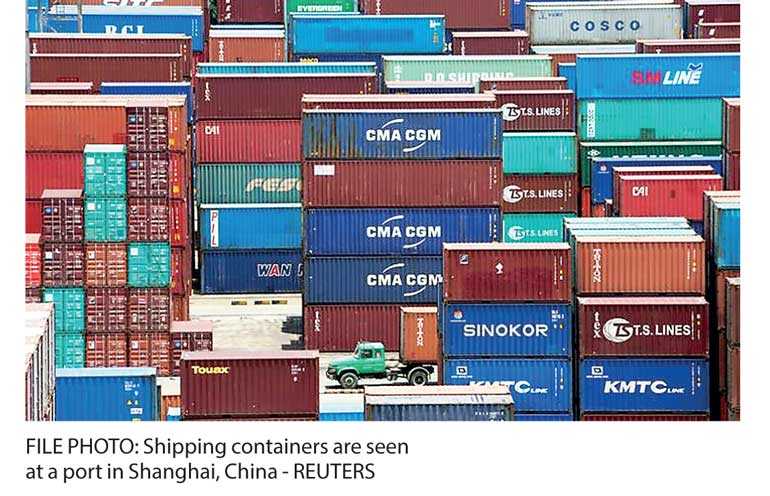Saturday Feb 28, 2026
Saturday Feb 28, 2026
Friday, 21 September 2018 00:00 - - {{hitsCtrl.values.hits}}
 PARIS (Reuters): Global economic growth has peaked in the face of rising trade frictions and emerging market turbulence, the OECD said on Thursday, as it trimmed its earlier outlook.
PARIS (Reuters): Global economic growth has peaked in the face of rising trade frictions and emerging market turbulence, the OECD said on Thursday, as it trimmed its earlier outlook.
The world economy is on course for growth of 3.7% this year and next year, up from 3.6% last year, said the Organisation for Economic Co-operation & Development (OECD).
In its previous economic outlook in May, the Paris-based policy forum had forecast growth of 3.8% this year and 3.9% in 2019, but it said in an update on Thursday that growth had peaked since those last projections were made.
The OECD said trade growth, the engine behind the global upswing in recent years, had slowed this year to around three% from five% in 2017 as tensions between the United States and its major trade partners weighed on confidence and investment.
“Export order books have started to decline and that has been going on for a few months and what that means is the deceleration in trade growth will continue,” OECD chief economist Laurence Boone told journalists. “We are seeing the rise of protectionism biting into our outlook,” she added.
Even though the United States is the source of these trade frictions, the economic outlook for the United States was nevertheless the brightest amongst the OECD’s major developed economies, thanks to tax cuts and government spending.
The OECD left its forecast for U.S. growth this year unchanged at 2.9%, but trimmed the forecast for next year to 2.7%, from 2.8% previously.
It said that U.S. import tariffs were beginning to have an impact on the world’s biggest economy, estimating that those already imposed would lift overall U.S. prices 0.3-0.4%.
Particular products were even more effected, with U.S. prices for washing machines jumping 20% between March and July while U.S. exports of cars to China were down nearly 40% over one year.
Meanwhile, the OECD said that a weaker currency had so far helped China - which is not an OECD member - absorb the impact of higher U.S. tariffs, leaving its growth forecasts unchanged at 6.7% for this year and 6.4% for next year.
Rising U.S. interest rates and a stronger U.S. dollar spelled trouble for emerging market economies such as Argentina, Brazil and Turkey, the OECD said, slashing its forecasts for those three countries.
Boone said the OECD did not expect the difficulties to become a full blown emerging market crisis, as had occurred in 1998, because countries managed their finances better now.
Meanwhile, softer foreign demand meant the euro zone economy was unlikely to fare as well as previously expected.
The OECD downgraded the euro zone’s growth forecast for this year to 2.0% from 2.2%, and nudged next year’s outlook down to 1.9% from 2.1%.